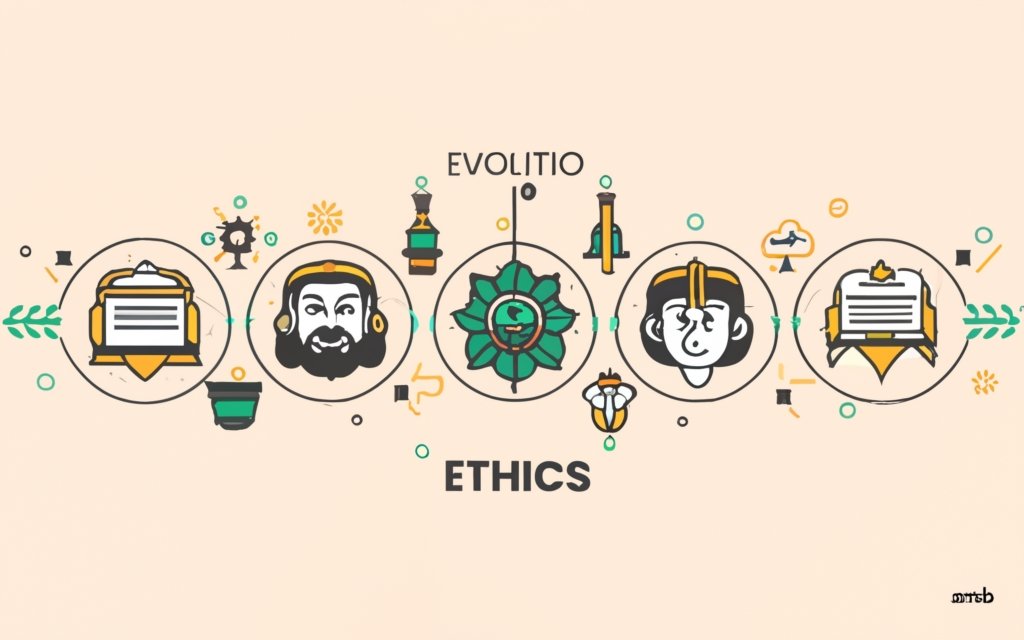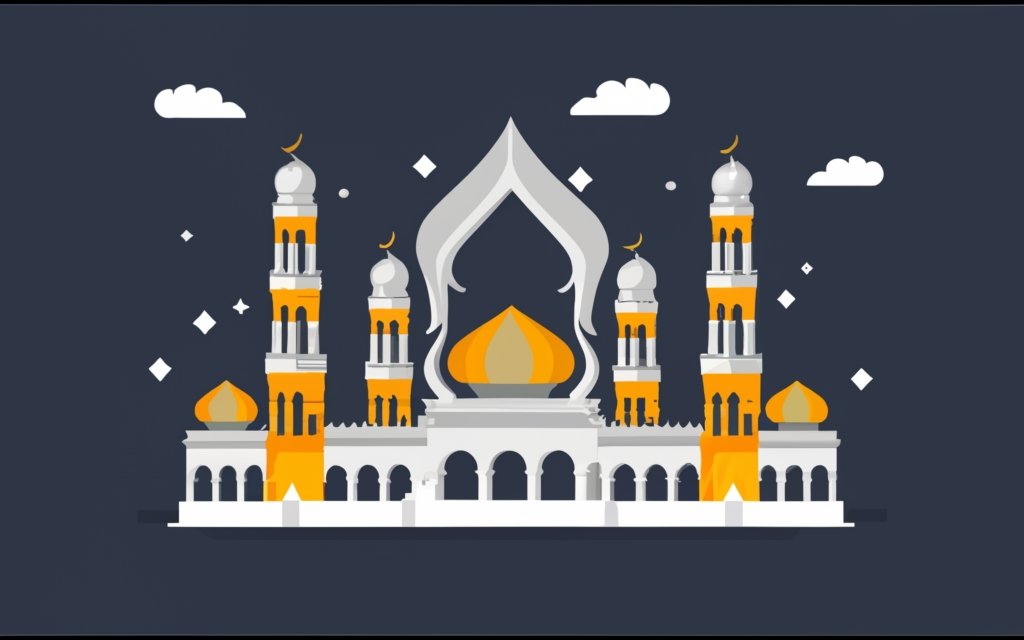Women and Ritual Purity in Islam: A Comprehensive Exploration
Introduction
In the realm of Islam, purity holds a revered place, signifying not just physical cleanliness but also spiritual integrity. This article embarks on a profound journey into the concept of “purity” from an Islamic perspective, shedding light on its multifaceted dimensions.
Historical Evolution of Islamic Ethics

Islamic ethics, defined as “good character,” underwent gradual development from the 7th century, crystallizing by the 11th century. It amalgamated Quranic teachings, Sunnah of Mohammed, and the insights of Islamic jurists. This transformation was catalyzed by Mohammed’s teachings, shifting moral values toward obedience to God and the last judgment.
The Foundational Source of Islamic Ethics
The Quran and the practices of Mohammed served as the cornerstone of Islamic ethics. The Quran articulates the standards of social and moral values for Muslims, emphasizing the responsibility of commanding good and forbidding evil.
Islam’s Clear Guidance on Purity
Islam offers clarity in every aspect of life, including purity or Tahara. A Muslim woman is guided on her attire, conduct during menstruation, and the path to rectify transgressions. This precision stands in stark contrast to the uncertain qualities of modern life.
The Five Pillars of Islam

The five fundamental pillars of Islam, including Shahada, Salat, Zakat, Sawm, and Hajj, not only serve as acts of worship but also foster self-control, love, unity, and equality among mankind. These pillars significantly impact social welfare.
A Glimpse into Islamic History
Before the advent of Islam, Arabia practiced polytheistic traditions, worshipping multiple deities. Mohammed’s revelation during the month of Ramadan in 610AD marked the birth of Islam, bringing monotheism and social reforms to the forefront.
The Meaning of Purity (Tahara) in Islam

Tahara, or “purity,” in Islam, is a system of ritual purification based on two premises. First, humans can lapse from ritual purity due to certain bodily acts or contact with unclean substances. Second, these lapses can be remedied through ritual purification, typically using clean water.
Importance of Purity in Islam
Purity is a fundamental tenet of Islam, impacting the soul, attire, and surroundings. It is a prerequisite for prayer and Quranic engagement. The Quran emphasizes the importance of purity, equating it with God’s love.
Shia Views on Purity
Islamic jurisprudence varies in views on purity. While the majority of Shia Muslims believe in the impurity of non-Muslims, particularly Kuffar, a minority holds the view of purity for non-believers.
In addition, it’s crucial to acknowledge the ever-evolving landscape of technology. Furthermore, the rapid advancements in artificial intelligence and automation have transformed various industries. Moreover, these changes have impacted the job market significantly. Similarly, the rise of remote work, fueled by the pandemic, has altered the way we work and communicate.
Consequently, many individuals find themselves adapting to this new work environment. Therefore, it’s essential to equip yourself with the necessary skills and adaptability. Thus, staying relevant in the job market becomes imperative.
In summary, the current job market is marked by both challenges and opportunities. To summarize, while technology may replace certain roles, it also creates new ones. In conclusion, by embracing change and continuous learning, individuals can navigate these shifts successfully.
On the other hand, it’s vital to recognize the importance of soft skills. Nevertheless, technical expertise alone may not suffice in today’s workforce. Nonetheless, skills such as communication, problem-solving, and teamwork remain invaluable.
In contrast, let’s explore the concept of hybrid work models. For instance, some organizations adopt a hybrid approach, allowing employees to work both in-office and remotely. For example, this approach offers flexibility while maintaining the benefits of in-person collaboration.
In particular, the ability to adapt to different work environments is increasingly valuable. Additionally, besides technical proficiency, employers seek candidates who can thrive in diverse settings. As a result, hence, cultivating a well-rounded skill set is essential.
Subsequently, let’s delve into the importance of networking. Meanwhile, building and nurturing professional relationships can open doors to new opportunities. Meanwhile, it’s not just about who you know but also how you present yourself. On the contrary, in contrast to generic job applications, a strong network can give you the upper hand.
In contrast to traditional job hunting methods, leveraging your network can yield more promising results. Nevertheless, networking requires time and effort. Nonetheless, the benefits it offers in terms of career growth are worth the investment.
In the same way, let’s touch on the significance of lifelong learning. Furthermore, it’s important to note that learning doesn’t stop after formal education. Consequently, individuals should embrace continuous learning throughout their careers. Therefore, they can stay up-to-date with industry trends and technological advancements.
Conversely, neglecting self-improvement can lead to stagnation. In the meantime, the world is changing rapidly, and those who fail to adapt may find themselves left behind. In a similar vein, as a matter of fact, staying curious and open to new experiences can enhance your personal and professional development.
In retrospect, it’s evident that the job market is in a state of flux. In the first place, it’s essential to recognize the need for flexibility and resilience. As a consequence, in the event that unforeseen challenges arise, individuals can navigate them effectively.
In other words, above all, the key to thriving in today’s job market is to embrace change and seize opportunities. In particular, to illustrate, by honing a diverse skill set, building a strong network, and committing to lifelong learning, you can chart a successful career path.
In essence, adaptability and a growth mindset are your greatest assets in the ever-changing world of work. In general, as the job market continues to evolve, those who are willing to innovate and learn will find themselves well-positioned for success.
Conclusion:

In conclusion, we’ve explored the dynamic nature of the modern job market and the essential strategies for success. It’s evident that adaptability, continuous learning, and effective networking play pivotal roles in shaping your career journey. To summarize, embracing change and seizing opportunities are the keys to thriving in this ever-evolving landscape.
FAQ:
Q1: What are some creative words to replace “is”?
A1: Instead of relying on “is” too frequently, consider using synonyms like “represents,” “signifies,” “equals,” or “symbolizes.” These alternatives can add depth and nuance to your writing.
Q2: How can I improve my networking skills?
A2: Networking is about building authentic relationships. To enhance your networking skills, engage in industry events, connect with professionals on platforms like LinkedIn, and attend seminars or workshops. Remember, it’s not just about what you can gain but also what you can offer to others.
Q3: What’s the significance of embracing change in the job market?
A3: Embracing change is vital because the job market constantly evolves due to technological advancements and economic shifts. Those who resist change may find it challenging to remain competitive. By embracing change, you position yourself as someone who can adapt and innovate.
Q4: How can I make my resume stand out in a competitive job market?
A4: To make your resume stand out, focus on highlighting your achievements and specific skills that are relevant to the job you’re applying for. Use action verbs and quantify your accomplishments whenever possible. Tailor your resume to each position, showcasing how you can contribute to the employer’s goals.
Q5: What are some rare or slang words that can add flair to my writing?
A5: Incorporating rare or slang words can infuse your writing with personality. Some examples include “serendipitous” for fortunate, “clandestine” for secret, “brouhaha” for commotion, and “ludicrous” for absurd. However, use them judiciously to maintain clarity in your writing.
Q6: How can I remove random commas from my writing?
A6: To avoid comma splices and random commas, review your sentences carefully. Ensure that each comma serves a clear purpose, such as separating items in a list or setting off introductory phrases. If a comma doesn’t fulfill one of these roles, consider removing it to enhance the flow of your writing.
In essence, staying adaptable, honing your skills, and nurturing your professional relationships are the cornerstones of success in today’s job market. By following these guidelines and embracing change, you can navigate the complexities of the working world with confidence and resilience.







